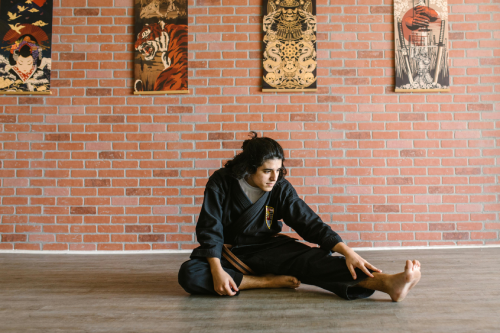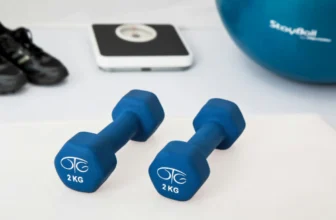
1. Introduction: Why Physical and Mental Fitness Matter
In a world that constantly demands more from us—whether in our careers, relationships, or personal lives—being physically fit is not enough. We must also maintain our mental health. Balancing both areas creates a state of peak performance where your body and mind work harmoniously to achieve your goals.
Achieving physical and mental fitness isn’t about perfection but rather about finding a routine that suits your lifestyle and empowers you to handle challenges with resilience, energy, and focus.
2. Understanding Physical Fitness
Physical fitness encompasses more than just muscle size or endurance. It’s about your body’s ability to function efficiently across various physical activities, from daily chores to intense sports.
Importance of Physical Activity
- Boosts cardiovascular health: Regular exercise strengthens your heart and lungs.
- Improves mood: Exercise stimulates endorphin production, reducing stress and boosting happiness.
- Enhances energy levels: Exercise increases oxygen flow to muscles, improving overall vitality.
- Promotes longevity: Active lifestyles reduce the risk of chronic diseases like diabetes, heart disease, and certain cancers.
Components of Physical Fitness
To achieve a well-rounded state of fitness, your routine should include:
- Cardiorespiratory Endurance: Ability of the heart and lungs to supply oxygen during sustained physical activity.
- Muscular Strength: The capacity of muscles to exert force.
- Muscular Endurance: Ability of muscles to perform repetitive actions without fatigue.
- Flexibility: Range of motion in your joints.
- Body Composition: The ratio of fat to lean mass in the body.
3. Building Your Physical Fitness Routine
A balanced fitness routine incorporates different types of exercise to maximize results.
Types of Exercises
- Strength Training (Resistance Exercise)
- Builds muscle mass and strength.
- Enhances bone density and metabolism.
- Exercises: Weight lifting, resistance bands, bodyweight exercises like push-ups and squats.
- Cardiovascular Exercise
- Improves heart and lung function.
- Burns calories and aids in weight management.
- Exercises: Running, cycling, swimming, HIIT (High-Intensity Interval Training).
- Flexibility and Mobility Training
- Enhances range of motion and reduces injury risk.
- Exercises: Yoga, Pilates, dynamic stretching.
Creating a Balanced Workout Schedule
- Beginner: 3-4 sessions per week (alternate strength and cardio).
- Intermediate: 4-5 sessions per week, integrating flexibility work into your routine.
- Advanced: 5-6 sessions per week, with varied intensity and structured recovery.
Nutrition for Optimal Performance
- Carbohydrates: Provide energy for workouts (whole grains, fruits, vegetables).
- Protein: Supports muscle repair and growth (lean meats, beans, nuts).
- Fats: Essential for cell function and hormone production (avocados, nuts, olive oil).
- Hydration: Staying hydrated is crucial for peak physical performance. Drink water before, during, and after exercise.
4. Understanding Mental Fitness
Just as muscles need to be exercised, so does the mind. Mental fitness involves practices that improve your cognitive function, emotional well-being, and overall mental agility.
What is Mental Fitness?
Mental fitness refers to the state of well-being where the brain operates optimally, enhancing focus, memory, emotional regulation, and resilience against stress. A fit mind enables you to handle daily challenges effectively and maintain a positive outlook.
Components of Mental Wellness
- Emotional Regulation: Ability to manage emotions, stress, and mental distress.
- Cognitive Function: Mental agility, memory retention, focus, and problem-solving skills.
- Resilience: Capacity to bounce back from challenges.
- Mindfulness: Being present and aware of thoughts and feelings without judgment.
5. Building Your Mental Fitness Routine
Developing mental fitness requires intentional exercises that train the brain to be more adaptable, focused, and calm.
Mindfulness and Meditation
- Mindfulness: Practicing awareness of the present moment helps reduce anxiety and stress.
- Techniques: Body scan, breath awareness, and mindful walking.
- Meditation: Structured meditation promotes mental clarity and emotional balance.
- Types: Guided meditation, transcendental meditation, and focused attention meditation.
Cognitive Exercises for Mental Agility
- Puzzles and Brain Games: Crosswords, Sudoku, and chess improve problem-solving skills and memory.
- Learning New Skills: Acquiring new knowledge (like learning a language or playing an instrument) builds cognitive flexibility.
- Journaling: Writing regularly helps you process thoughts, manage emotions, and reflect on goals.
6. Integrating Physical and Mental Fitness
The connection between physical and mental fitness is profound. A healthy body supports a healthy mind, and vice versa. Combining practices for both creates powerful synergies that optimize performance in all areas of life.
The Mind-Body Connection
- Exercise as a Mental Health Tool: Physical activity releases chemicals like endorphins and serotonin that boost mood and reduce anxiety.
- Mental Toughness in Physical Training: Mental focus and resilience are essential for overcoming physical challenges and pushing beyond limits.
Strategies for Synergy
- Holistic Workouts: Incorporate mind-body exercises like yoga and Tai Chi that blend physical movement with mental focus.
- Active Meditation: Engage in moving meditation practices, such as mindful running or walking, where you focus on the rhythm of movement.
- Breathwork: Use controlled breathing techniques during workouts to enhance endurance and reduce stress.
7. Overcoming Challenges
Whether it’s a busy schedule, a lack of motivation, or mental fatigue, obstacles to achieving peak performance are inevitable. Here’s how to overcome them:
Common Barriers to Physical and Mental Fitness
- Time Constraints: Opt for shorter, high-intensity workouts or meditation sessions that fit into your day.
- Lack of Motivation: Set small, achievable goals and track progress to stay motivated.
- Mental Burnout: Incorporate rest and relaxation practices like deep breathing, journaling, or simply taking breaks from screens.
Staying Consistent: Tips for Long-Term Success
- Set Realistic Goals: Break down big objectives into smaller milestones to maintain focus and motivation.
- Create a Routine: Consistency is key. Schedule your physical and mental fitness activities just like any other important task.
- Track Your Progress: Regularly assess how far you’ve come, both physically and mentally.
- Find Accountability: A workout buddy or a mental fitness coach can help keep you on track.
8. Conclusion: The Journey to Peak Performance
Unlocking peak performance is a journey that requires dedication, consistency, and balance. By focusing on both physical and mental fitness, you create a powerful foundation for achieving success in every area of life. Whether you’re striving for professional excellence, personal growth, or simply a healthier lifestyle, integrating physical exercise and mental wellness practices will help you reach your full potential.
Take small steps, build a sustainable routine, and remember that peak performance isn’t about perfection—it’s about continuous growth and improvement. Start your journey today, and watch as your body and mind transform into the best versions of themselves.



